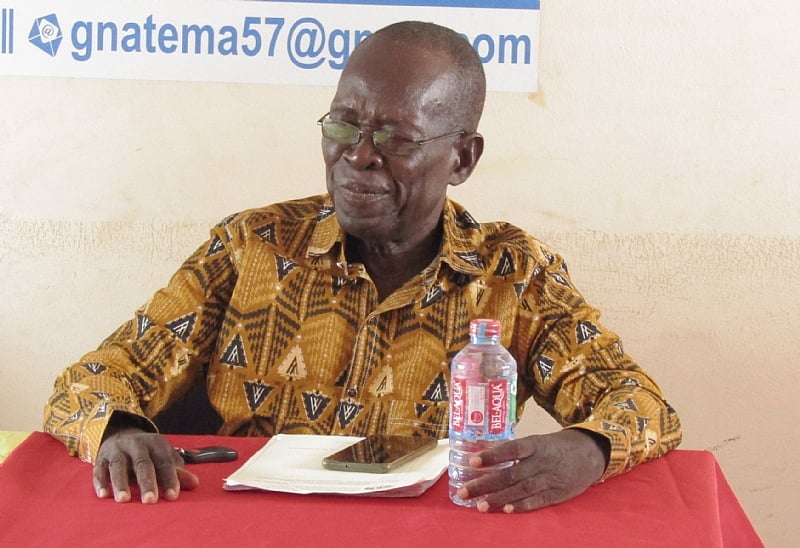The Ghana Federation of Labour (GFL) has launched a scathing critique of the New Patriotic Party (NPP), accusing the opposition party of endorsing reckless behavior among its members and attempting to shield them from accountability for alleged wrongdoing during their previous tenure in power. The GFL’s Secretary General, Abraham Koomson, points to the NPP’s “Yen Suro Ahunahuna” demonstration as a prime example of this recklessness, alleging that the protest served as a platform to legitimize the use of social media for insulting state officials, traditional leaders, and religious figures. Furthermore, Koomson contends that the NPP is actively trying to protect its members from investigations into alleged looting of state resources during their eight years in government. He emphasizes that any NPP member summoned by state security agencies is facing due process for alleged breaches of the law and that the party’s attempts to discredit these institutions are unwarranted.
Koomson singles out the NPP’s criticism of the Office of the Special Prosecutor (OSP) as particularly hypocritical, highlighting that the OSP was established by the NPP themselves, with their own appointee at its helm. He questions how the party can now accuse the Special Prosecutor, Lawyer Kissi Agyabeng, of political witch-hunting when he is simply carrying out his mandated duties to investigate financial crimes. The GFL Secretary General argues that obstructing the government’s efforts to recover misappropriated funds is a disservice to the Ghanaian people and underscores the principle that all public officials must be held accountable for their actions. He urges the NPP to reflect on its past failures, adopt a more humble approach in opposition, and refrain from defending the alleged misdeeds of its former leaders, warning that such actions will only further alienate the Ghanaian public.
The GFL’s criticism extends beyond the NPP’s recent actions, encompassing a broader condemnation of the party’s legacy in government. Koomson enumerates a litany of perceived failures, including the financial sector cleanup, which led to the collapse of numerous indigenous financial institutions; the economic hardships resulting from policies like the “Akufo Addo haircut” and the E-levy; the free fall of the cedi; the controversial LI 2462, which allegedly exacerbated illegal mining; the excessive size of the government; and the perceived arrogance of party and government officials. These actions, Koomson argues, have left a lasting negative impact on the Ghanaian economy and public trust.
Furthermore, Koomson directs his criticism towards the previous administration of John Dramani Mahama, expressing disappointment over the perceived lack of swift prosecution of individuals implicated in corruption under the preceding NPP government. He laments that those allegedly involved in major financial irregularities during the NPP era remain free and are now emboldened to organize demonstrations and publicly criticize the current government. While acknowledging that the judicial process can be slow, Koomson emphasizes the principle of justice delayed is justice denied and calls on the government to expedite investigations and prosecutions of all those who have allegedly caused financial loss to the state, regardless of their political affiliations.
Koomson does not limit his commentary to condemnation alone; he also commends the police administration for their professional conduct during the NPP demonstration. He praises their restraint in the face of alleged provocation by some NPP elements, highlighting their commitment to maintaining law and order. This commendation underscores the GFL’s belief in the importance of upholding democratic principles and respecting the rule of law, even amidst political tensions.
In conclusion, the GFL’s statement represents a strong indictment of the NPP’s conduct, both in its recent actions and during its previous time in government. Koomson’s accusations range from endorsing reckless behavior and obstructing justice to implementing harmful economic policies and fostering a culture of arrogance. The GFL’s call for accountability, reflection, and a more humble approach in opposition serves as a stark reminder of the importance of responsible leadership and the need to prioritize the welfare of the Ghanaian people above partisan interests. The GFL’s commendation of the police also highlights the vital role of law enforcement in maintaining stability and upholding democratic principles in a politically charged environment.


